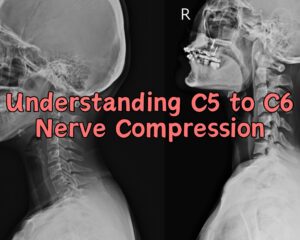
When it comes to chronic pain, finding effective treatment options is crucial for managing symptoms and improving overall well-being. In this article, we explore a range of chronic pain treatment options, offering insights into various approaches that can help individuals find relief and regain control over their lives. By understanding these treatment options, individuals can make informed decisions in collaboration with healthcare professionals to develop a personalized pain management plan.

- Medications for Chronic Pain: Medications play a significant role in managing chronic pain. Commonly prescribed medications include analgesics, nonsteroidal anti-inflammatory drugs (NSAIDs), opioids, anticonvulsants, and antidepressants. These medications aim to reduce pain, inflammation, and address associated symptoms such as sleep disturbances or mood disorders.
- Physical Therapy and Rehabilitation: Physical therapy and rehabilitation programs are valuable for chronic pain management. These programs focus on exercises, stretches, and techniques to improve strength, flexibility, and mobility. Physical therapists may also use modalities like heat or cold therapy, electrical stimulation, or manual therapies to alleviate pain.
- Interventional Procedures: Interventional procedures offer targeted pain relief for specific conditions. These procedures may include nerve blocks, epidural injections, joint injections, radiofrequency ablation, or spinal cord stimulation. They aim to block pain signals, reduce inflammation, or disrupt nerve impulses.
- Complementary and Alternative Therapies: Complementary and alternative therapies can complement traditional approaches to chronic pain management. These may include acupuncture, chiropractic care, massage therapy, herbal supplements, biofeedback, or relaxation techniques. These therapies focus on holistic well-being and aim to reduce pain, promote relaxation, and enhance overall health.
- Cognitive-Behavioral Therapy (CBT): Cognitive-behavioral therapy is a psychological approach that helps individuals develop coping strategies and change negative thoughts or behaviors associated with chronic pain. CBT aims to improve emotional well-being, enhance stress management skills, and promote a positive mindset.
- Lifestyle Modifications: Lifestyle modifications are crucial in managing chronic pain. These may include maintaining a balanced diet, regular exercise, adequate sleep, stress reduction techniques, and smoking cessation. Adopting a healthy lifestyle can improve overall well-being, reduce pain, and enhance the body’s ability to cope with chronic pain.
- Supportive Therapies and Self-Care: Supportive therapies and self-care practices play an integral role in chronic pain management. These may include mindfulness meditation, deep breathing exercises, journaling, engaging in hobbies, joining support groups, and seeking social support. These strategies promote emotional well-being, reduce stress, and enhance overall quality of life.
Chronic pain treatment options encompass a range of approaches, from medications and physical therapy to complementary therapies and lifestyle modifications. Every individual’s pain experience is unique, and a personalized treatment plan should be developed in collaboration with healthcare professionals. By exploring these treatment options, individuals can embark on a journey to find relief, manage symptoms, and regain control over their lives. Remember, with persistence, patience, and a comprehensive approach, a pain-free life is within reach.
As an Amazon Associate we earn from qualifying purchases through some links in our articles.




